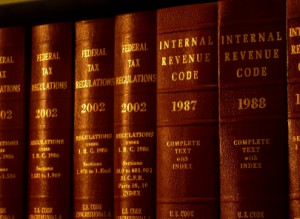Tax Planning for Small Business
When it comes to tax planning for small businesses, they confront unique obstacles. It is crucial for small business owners to take proactive measures to minimize their tax liability and enhance their bottom line, given their limited resources and often complex tax rules. In this article, Rick S. Vourganas will discuss some of the most effective techniques small businesses can employ to reduce their tax burden and achieve better financial success.
Understanding the Tax Code

Effective tax planning for small business begins with an understanding of the tax code. This involves being aware of all applicable tax deductions, credits, and other tax advantages for small businesses. This knowledge can help you find chances to reduce your tax liability, such as claiming deductions for rent, utilities, and equipment.
Increasing Deductions
Maximizing deductions is one of the most efficient techniques to reduce one’s tax liability. This can be accomplished by maintaining precise records of all business expenses and claiming all tax-deductible expenses on your tax return.
Among the most prevalent company deductions are:
- Rent or mortgage payments for commercial real estate
- Utility costs and other operational costs
- Equipment and supplies
- Travel expenses
- Employee compensation and benefits
It is also crucial to understand the laws governing the tax deductions of company expenses, such as the necessity to demonstrate that the expenses are not for personal use.
Small Businesses Can Take Advantage of Tax Credits
In addition to tax deductions, tax credits can be advantageous to small businesses. Tax credits are subtracted directly from the amount of taxes payable, resulting in substantial savings.
Among the most prevalent tax credits for small enterprises are:
- Credit for research and development
- Work incentive tax credit
- Credit for dependent care and childcare
Tax Planning Strategies for Small Businesses
graph LR A[Understanding the Tax Code] --> B[Maximizing Deductions] B --> C[Taking Advantage of Tax Credits]
Retirement Plan Contributions

Contributing to an employee retirement plan is another excellent method for small businesses to save on taxes. This not only helps employees plan for their financial future, but it also provides the organization with a tax advantage. Contributions to a qualified retirement plan can be deducted from an organization’s taxable income, resulting in substantial savings.
Employment of Independent Contractors
Additionally, hiring independent contractors instead of full-time staff might help in tax planning for small business to save on taxes. Independent contractors must pay their own taxes and are not eligible for employee benefits. This can result in substantial tax savings for the enterprise.
Conclusion
Tax preparation is crucial to the success of any small business. By knowing the tax code, optimizing deductions, utilizing tax credits, contributing to a retirement plan, and employing independent contractors, small business owners can minimize their tax obligation and increase their net income. Small businesses may navigate the difficult world of tax preparation and achieve better financial success with the correct strategy and a commitment to remaining prepared.



